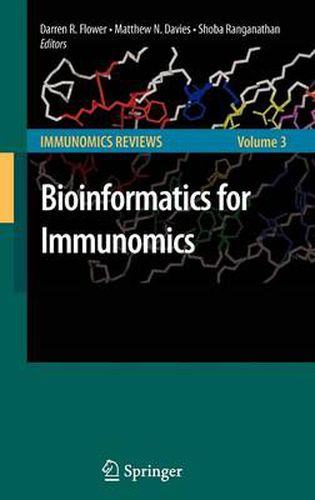Readings Newsletter
Become a Readings Member to make your shopping experience even easier.
Sign in or sign up for free!
You’re not far away from qualifying for FREE standard shipping within Australia
You’ve qualified for FREE standard shipping within Australia
The cart is loading…






This title is printed to order. This book may have been self-published. If so, we cannot guarantee the quality of the content. In the main most books will have gone through the editing process however some may not. We therefore suggest that you be aware of this before ordering this book. If in doubt check either the author or publisher’s details as we are unable to accept any returns unless they are faulty. Please contact us if you have any questions.
Like many words, the term immunomics equates to different ideas contingent on context. For a brief span, immunomics meant the study of the Immunome, of which there were, in turn, several different definitions. A now largely defunct meaning rendered the Immunome as the set of antigenic peptides or immunogenic proteins within a single microorganism - be that virus, bacteria, fungus, or parasite - or microbial population, or antigenic or allergenic proteins and peptides derived from the environment as a whole, containing also proteins from eukaryotic sources. However, times have changed and the meaning of immunomics has also changed. Other newer definitions of the Immunome have come to focus on the plethora of immunological receptors and accessory molecules that comprise the host immune arsenal. Today, Immunomics or immunogenomics is now most often used as a synonym for high-throughput genome-based immunology. This is the study of aspects of the immune system using high-throughput techniques within a conc- tual landscape borne of both clinical and biophysical thinking.
$9.00 standard shipping within Australia
FREE standard shipping within Australia for orders over $100.00
Express & International shipping calculated at checkout
This title is printed to order. This book may have been self-published. If so, we cannot guarantee the quality of the content. In the main most books will have gone through the editing process however some may not. We therefore suggest that you be aware of this before ordering this book. If in doubt check either the author or publisher’s details as we are unable to accept any returns unless they are faulty. Please contact us if you have any questions.
Like many words, the term immunomics equates to different ideas contingent on context. For a brief span, immunomics meant the study of the Immunome, of which there were, in turn, several different definitions. A now largely defunct meaning rendered the Immunome as the set of antigenic peptides or immunogenic proteins within a single microorganism - be that virus, bacteria, fungus, or parasite - or microbial population, or antigenic or allergenic proteins and peptides derived from the environment as a whole, containing also proteins from eukaryotic sources. However, times have changed and the meaning of immunomics has also changed. Other newer definitions of the Immunome have come to focus on the plethora of immunological receptors and accessory molecules that comprise the host immune arsenal. Today, Immunomics or immunogenomics is now most often used as a synonym for high-throughput genome-based immunology. This is the study of aspects of the immune system using high-throughput techniques within a conc- tual landscape borne of both clinical and biophysical thinking.